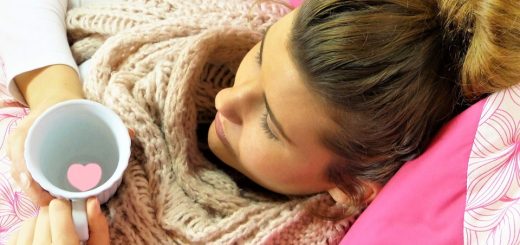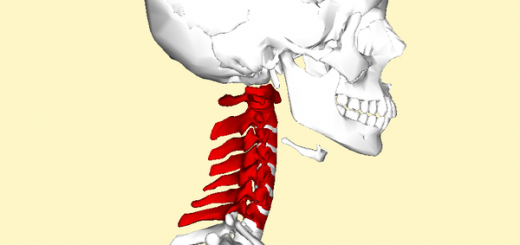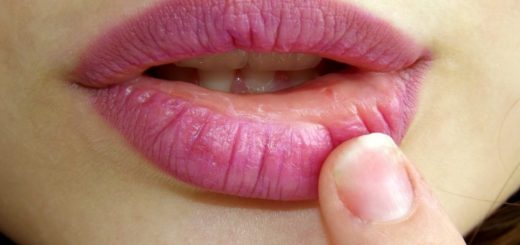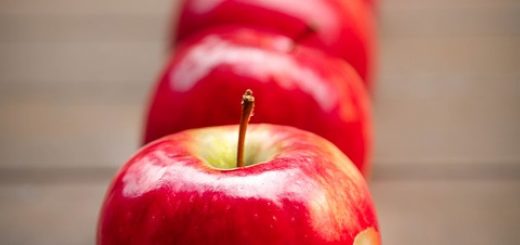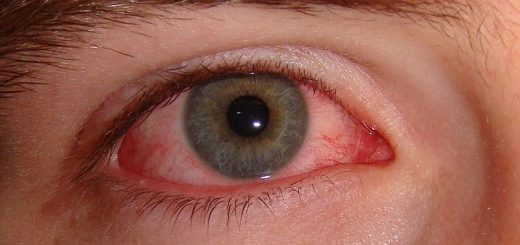13 Home Remedies for Insomnia
When we’re cranky the most commonly asked question is, “Did you get enough sleep last night?” If you didn’t get the recommended amount of sleep, at a minimum of seven to eight hours, you may be suffering from insomnia. Insomnia can include but is not limited to the following symptoms according to the Mayo Clinic:
- Difficulty falling asleep at night
- Waking up during the night
- Waking up too early
- Not feeling well-rested after a night’s sleep
- Daytime tiredness or sleepiness
- Irritability, depression, or anxiety
- Difficulty paying attention, focusing on tasks, or remembering
- Increased errors or accidents
- Ongoing worries about sleep
We don’t know all the causes of insomnia, but this article will present several common cures for insomnia in the hopes to eliminate symptoms that may interfere with your day to day life.
Home Remedies for Insomnia
-
Limit Screen Time
The screens on our common devices such as our smartphones, tablets, and laptops emit light that can trick our wake-sleep cycle by providing artificial light that leads our brains into believing it’s not time to sleep. To help you fall asleep sooner and reduce the incidents of insomnia, log off, shut down, and leave your devices out of the bedroom.

Both adults and children should limit their screen time both during the day and before bed
-
No TV’s in the Bedroom
This issue is closely related to screen time as having a TV in the bedroom both provide artificial light but also causes distractions that may be distressing; your nightly news. Remove the TV from the bedroom and reserve that space for sleeping and procreation.
-
Limit Caffeine
Many like a strong cup of coffee or tea in the morning but in you’re still consuming caffeinated beverages after 6 p.m., you’re in danger of insomnia. Hydration is a must to counter the effects of caffeine but be careful to not drink too much as your bladder will then become an unwanted alarm clock that will inhibit your ability to sleep for the necessary seven to eight hours.
-
Avoid the News
In today’s electronic society there are many ways to access the news, from your social media pages, television, and newspapers. Your brain needs time to rest along with your body so avoid watching or reading anything distressing after 6 p.m.; if you must watch the news at six do so with your last cup of coffee, but then find a comedy and a glass of water to tide you over.
-
Exercise
Exercise is good for you in many ways. The endorphins that are created give your brain a bath of feel-good chemicals and the physical tiredness will aid in your sleep. The key is to avoid exercising anytime within four hours of your normal bedtime. Some people can only exercise after work and may pass the magical hour of 6 p.m. and if you do, try to allow for four hours to pass before attempting sleep. Your metabolism will burn fat but also keep your nervous system on high alert for up to four to six hours which can interfere with falling asleep.
-
Darkness
If you live in the Northern Hemisphere from early spring to fall the hours of daylight are expanded. Sleeping with light streaming in your windows past 10 p.m. or filtering through before 6 a.am. can disrupt your wake-sleep cycle like a lighted screen. Use room darkening curtains to keep it dark when you need it the most.
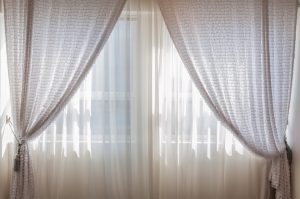
If you do not have dark curtains, try layering curtains instead
-
Listen to Music
Unlike watching TV, listening to soothing music can help a person fall asleep from either their own personal favorites to a sound machine that has soothing sounds such as rain or waves lapping up on shore. Keep the volume low enough to produce the white noise you desire but not loud enough to startle you awake.
-
Calming Scents
Many use aromatherapies to help relax their brains and bodies to allow for a more restful night sleep. This can be in the form of essential oils, (be aware that some are dangerous for pets, read up on the precautions), to fresh cut flowers, or a mister.
-
Meditation
Imagine your perfect day, maybe it’s walking barefoot on the beach looking for seashells or laying in a field looking up at the night sky. If you don’t have an active imagination there are many guided visualization CD’s that can be purchased that will walk you through a peaceful situation; try a few until you find the one that works the best for you.
-
Progressive Muscle Relaxation
Starting with your toes you’ll clench them for five seconds. You’ll then work your way up your body with the last muscle to clench is your face, which you’ll go into a grimace and then relax. Prepare your significant other that you’re doing this method to not alarm them if they walk in when your face is in the grimace stage.
-
Medicines to Avoid
There are natural chemicals you can use such as melatonin that aid you in falling asleep but may not keep you asleep for the whole night. Avoid antihistamines that will put you to sleep but you’ll awake in a fog and have trouble concentrating throughout the morning.
-
Alcohol in Moderation
Alcohol will put you to sleep but only for a few hours and then you’ll potentially suffer the consequences of consumption. You do not need to stop drinking alcohol entirely, just do not rely on it to help you sleep. Do not drink more than two or three drinks a day.
-
Warm Beverages
Lastly, if sleep isn’t coming to you as quickly as you’d like you to have a couple options. The first is to get up and get a glass of water or, the aforementioned warm milk, then sit down and read a chapter or two in that book you were neglecting.
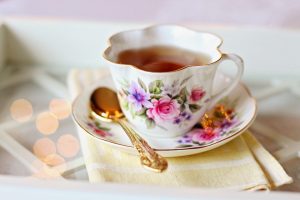
Drinking decaffeinated tea will also work well
Simply remind yourself even though your brain won’t shut off and allow you to sleep that your body is in a comfortable bed and is getting the physical rest it needs. Ultimately if you use one or more of the ten cures sleep will come. If insomnia persists consult your doctor where he or she can prescribe you something; hopefully it won’t come to that.
Reference
https://www.mayoclinic.org/diseases-conditions/insomnia/symptoms-causes/syc-20355167

